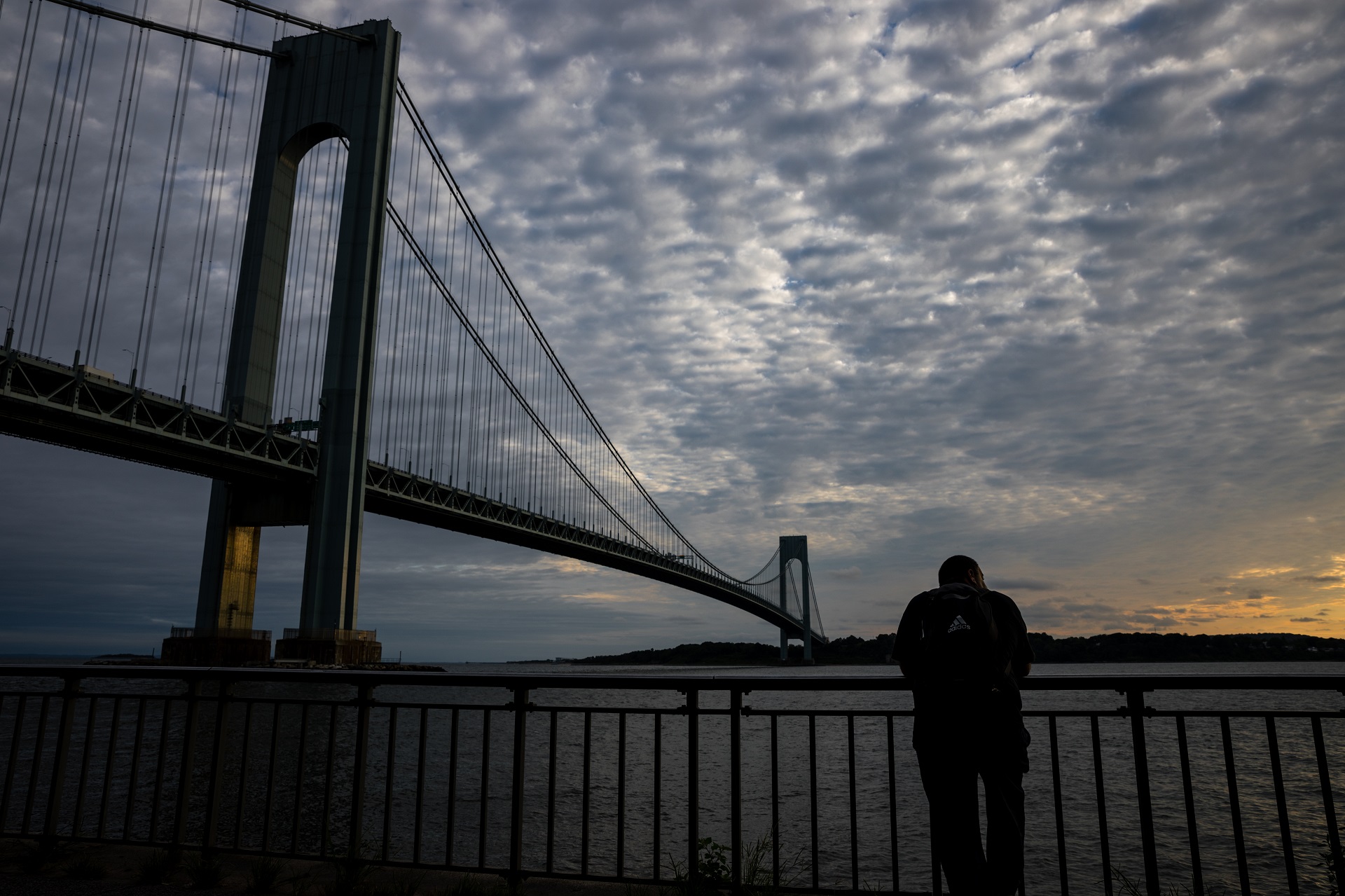Bay Ridge: Palestinian New Yorkers feel both targeted and ignored
At a rally on Friday and over the week, they shared fears about family members across the world and about life here.

Mahmoud Kasem hangs flags reading “Free Palesstine” at his Al Aqsa restaurant in Bay Ridge, Oct. 12, 2023. Photo: Gwynne Hogan, THE CITY
Mahmoud Kasem, 36, owner of Al Aqsa, a Palestinian restaurant in Bay Ridge, said he was trying his best to go through the motions, coming into the restaurant from his home in Bayside, Queens and chatting up customers.
“But inside it’s boiling, it’s like a volcano,” he said, speaking outside the restaurant on a Thursday afternoon.
Kasem’s mother, who lives with him in Queens, was in Gaza visiting their relatives and returned to the West Bank just days before the Hamas attack triggered Israel’s offensive. His cousins’ home has since been leveled to the ground in an airstrike, though the family survived, he said, since they happened to be out of the neighborhood searching for food.
